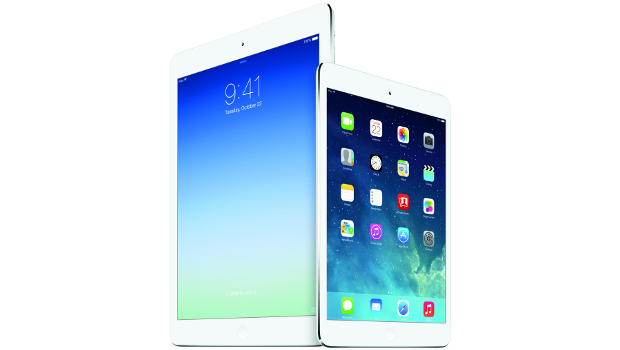The iPad will encounter strong market headwinds this year, but Apple should sell more tablets in 2015 than in 2014, according to a report from IDC.
“The iPad does face issues,” acknowledged Jitesh Ubrani of IDC in an interview Monday. “It’s being hit from the bottom by the iPhone 6 and iPhone 6 Plus, and from the top by the MacBook Air.”
Even so, IDC’s current forecast, formulated in November, pegs iPad sales for 2015 at 65.7 million, for a 4% year-on-year increase.
Apple sold 63.4 million iPads last year, a 15% decline from 2013.
“[The 65.7 million] is more in line with what Apple shipped in 2012,” Ubrani said. “Not only did Apple sell fewer iPads last year than in 2013, but it also sold fewer than the year before that.”
Alternate devices continue to pinch iPad sales, Ubrani said, with some consumers opting for larger-screen smartphones in lieu of a small-sized tablet, and others shelling out more money for a true notebook rather than trying to shoehorn a tablet into traditional business tasks. He pointed out that Apple’s lowest-priced 11″ MacBook Air is only $100 more than a 128Gb iPad Air 2 with a third party keyboard.
Ubrani cautioned that the prediction is preliminary, and would be adjusted later this month. But for now, IDC is sticking with the slight uptick.
Others are pessimistic. According to 9to5Mac.com, sell-side analyst Ming-Chi Kuo of KGI Securities told clients over the weekend that iPad sales will plunge 30% this year to around 44 or 45 million. If accurate, that number would be the lowest since 2011, when Apple sold 40 million.
Downturn
But Apple isn’t alone. IDC said that global tablet sales were down 3% in the final quarter of 2014.
“It’s not unique to the iPad, the whole tablet market faces a lot of challenges,” said Bob O’Donnell, chief analyst at Technalysis Research. “They’ve run through the early adopters, tablets have a big installed base in developed markets with people who are relatively content with what they have, and enterprise sales never really picked up like many thought because [companies] realized PCs were still useful.”
Neither Ubrani nor O’Donnell saw short-term salvation in a long-rumored larger iPad. “If Apple does a bigger iPad, it won’t fundamentally change the market,” said O’Donnell of speculation that Apple will introduce a 12.9″. tablet this year. “It might bring back some sales, but not everyone wants that size.”
Experts are often wrong, of course, especially about Apple. But their point – that the bigger-tablet market is merely a niche and unlikely to grow substantially this year – is based on what evidence is available: that sales of existing larger-screen devices targeting businesses and professionals, like Windows-powered 2-in-1s, have been lacklustre.
Yet no one should weep for Apple if it sells fewer iPads; Apple isn’t complaining.
The Cupertino company regularly downplays investor concerns about slumping sales of one line as long as it’s able to capture those dollars with others. CEO Tim Cook returned to that cannibalisation theme last month during an earnings call with Wall Street, saying that while iPhone and MacBook sales may be part of the current iPad problem – exacerbated by a longer-than-expected refresh cycle – he remained very optimistic.
“I believe that over the long arc of time that the iPad is a great business,” Cook said. “I also have visibility obviously of what’s in the pipeline and feel very, very good about that.”
The silver lining for Apple, said Ubrani, is that some of that cannibalization benefits the company, perhaps one reason why Cook was sanguine. “Apple makes more on an iPhone 6 Plus than on an iPad Air, and probably about the same on a MacBook Air,” he noted.
IDG News Service








Subscribers 0
Fans 0
Followers 0
Followers